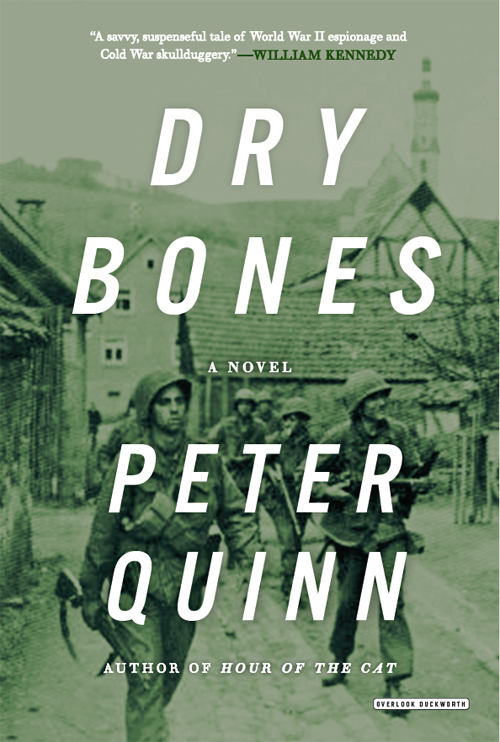
Dry Bones
The Fintan Dunne Mysteries, Book 3
- اطلاعات
- نقد و بررسی
- دیدگاه کاربران
نقد و بررسی

September 2, 2013
A botched OSS operation propels Quinn’s well-constructed third thriller featuring Fintan Dunne (after 2010’s The Man Who Never Returned). Near the end of WWII, an assignment on the Eastern Front has Dunne attempting to contact Resistance fighters in Slovakia. When things go south, Dunne catches typhus and breaks an ankle. Soon afterwards, he learns from an Auschwitz survivor about ghastly experiments at that camp by a doctor nicknamed “the Blue Devil.” Thirteen years later, Dunne has settled into a career as a PI, helping to run a large firm in New York City. Slowly, however, his past creeps up on him. When Turlough Bassante, a brilliantly eccentric colleague from Dunne’s days with the OSS, resurfaces with information about the Blue Devil, Dunne pursues the connections between the Nazi war criminal and the American intelligence community. Brilliantly researched, the book’s only weakness is a halting pace that at times renders exciting plot details perplexing. Agent: Robin Straus, Robin Straus Agency.

Starred review from October 15, 2013
Quinn's final installment in a spy trilogy that began with Hour of the Cat (2005) and The Man Who Never Returned (2010) sends New York PI Fintan Dunne on a secret wartime mission to Slovakia to rescue OSS officers from the last gasps of Nazi aggression. Dunne and his deceptively tough partner, the poetry-spouting banker's son Dick Van Hull, barely escape Slovakia, where nothing is as it was described. A slippery chain of events exposes them to Dr. Karsten Heinz, a war criminal whose grave offenses include supervising gruesome experiments on concentration camp victims. Not only does Heinz avoid conviction, he appears to be among the many Nazi scientists and technicians being imported by the U.S. government to aid in the fight against communism. That men who were employed by Hitler to help kill millions would be awarded new careers in America is, says an outraged OSS officer, "the greatest danger we face...becoming the enemy we oppose." Jump to 1958. Working for a high-profile Manhattan security firm (complete with a smart and beautiful office assistant), Dunne comes across coded instructions to meet an OSS crony who has crucial information about Heinz's whereabouts. More old friends and foes emerge from the shadows, while Van Hull, now a drunken shadow of his old self, remains hidden with a secret of his own. Quinn writes with elegant restraint; he's a master of tone and a deft orchestrator of people and events. His portrayal of Wild Bill Donovan, controversial head of the OSS, is but one of his sure-handed transformations of reality to fiction. Gripping up to the end, the book--which takes its title from the old spiritual about everything being connected--will send readers who were new to Quinn back to his other books in the series.
COPYRIGHT(2013) Kirkus Reviews, ALL RIGHTS RESERVED.

October 15, 2013
WWII is nearing its end in Europe, but General Wild Bill Donovan, head of the Office of Strategic Services, picks Fintan Dunne and Dick Van Hull to parachute into occupied Czechoslovakia to extract OSS officers dropped there to organize the Czech resistance. Immediately, Dunne and Van Hull are on the run, from Nazis, Czech Fascists, Russian troops, and hordes of refugees. They barely get out alive, but they discover an appalling secret that could cost them their lives. Quinn's plots defy easy summary, but his characters fascinate, and his sense of place and time is compelling. Dunne has seen too much war and salutes lost comrades with altar-boy Latin prayers. Van Hull's recitations of poetry provide apt punctuation for everything the men experience. Quinn's Czechoslovakia is a maelstrom; his evocation of ruined German cities almost palpable. Donovan's skill at navigating Washington's internecine wars, his abrupt jettisoning at war's end, and the dismissal of war-crimes charges for hundreds of culpable Nazis deemed useful in the coming Cold War are vividly drawn. Readers who want to really taste history will welcome Dry Bones.(Reprinted with permission of Booklist, copyright 2013, American Library Association.)




دیدگاه کاربران